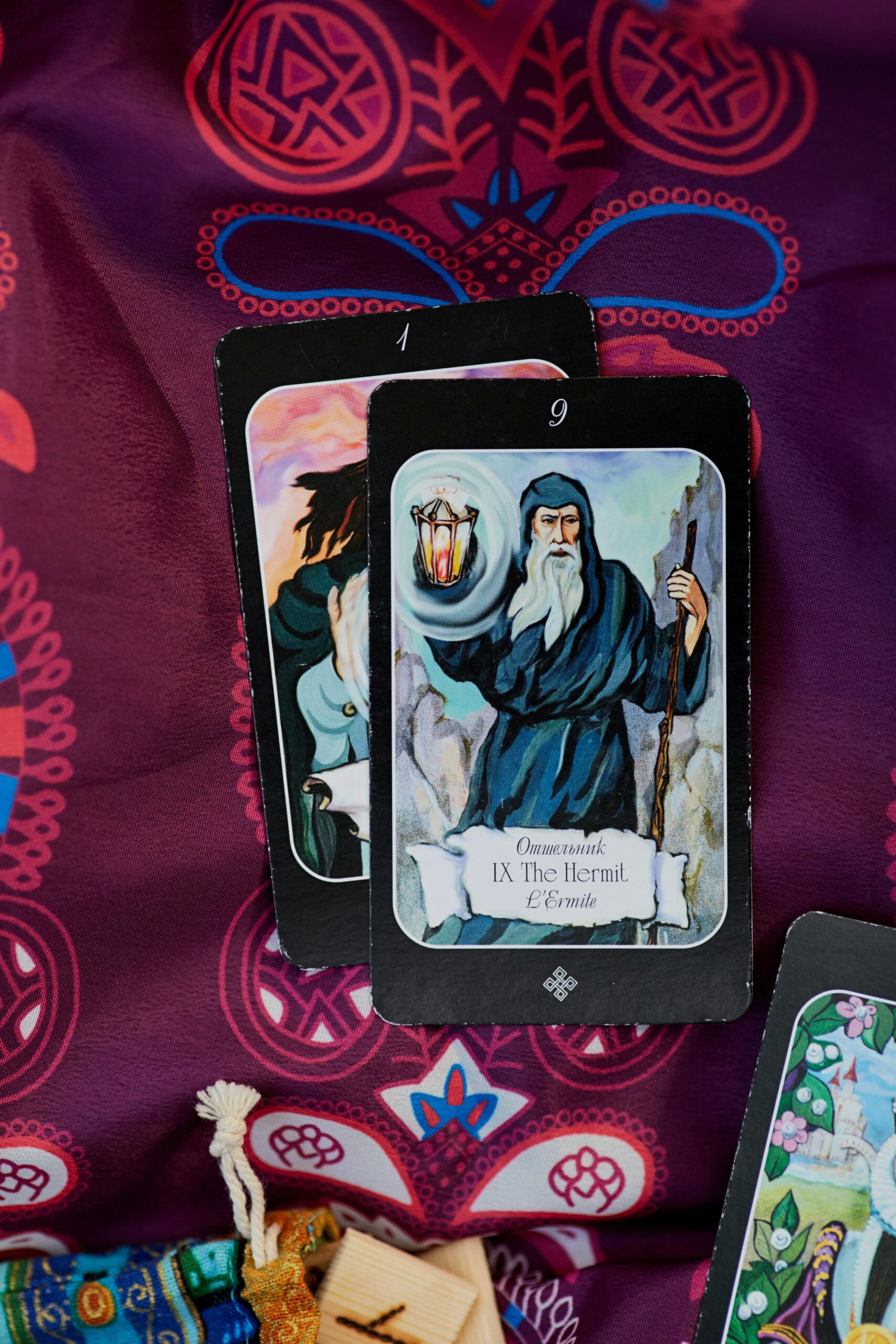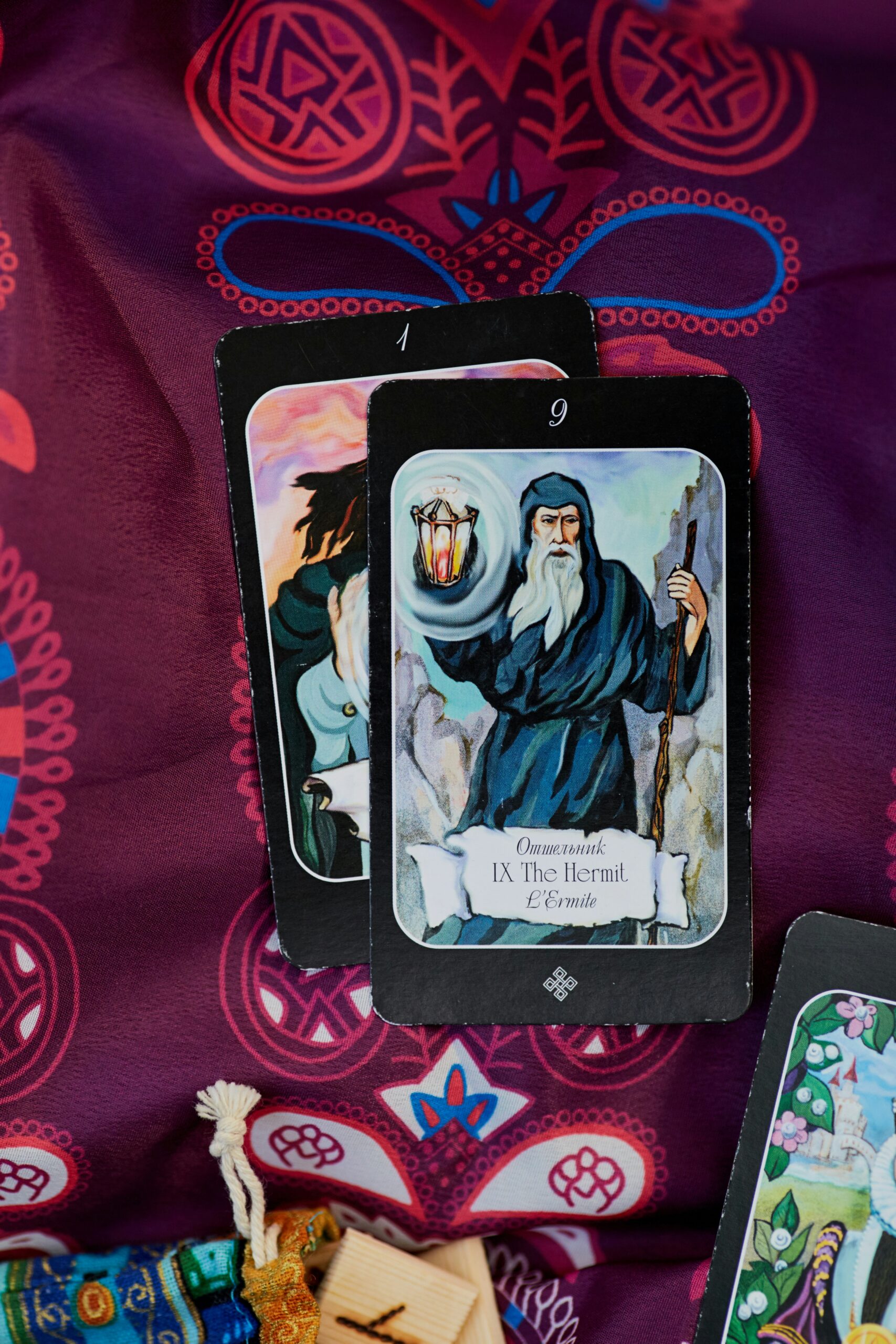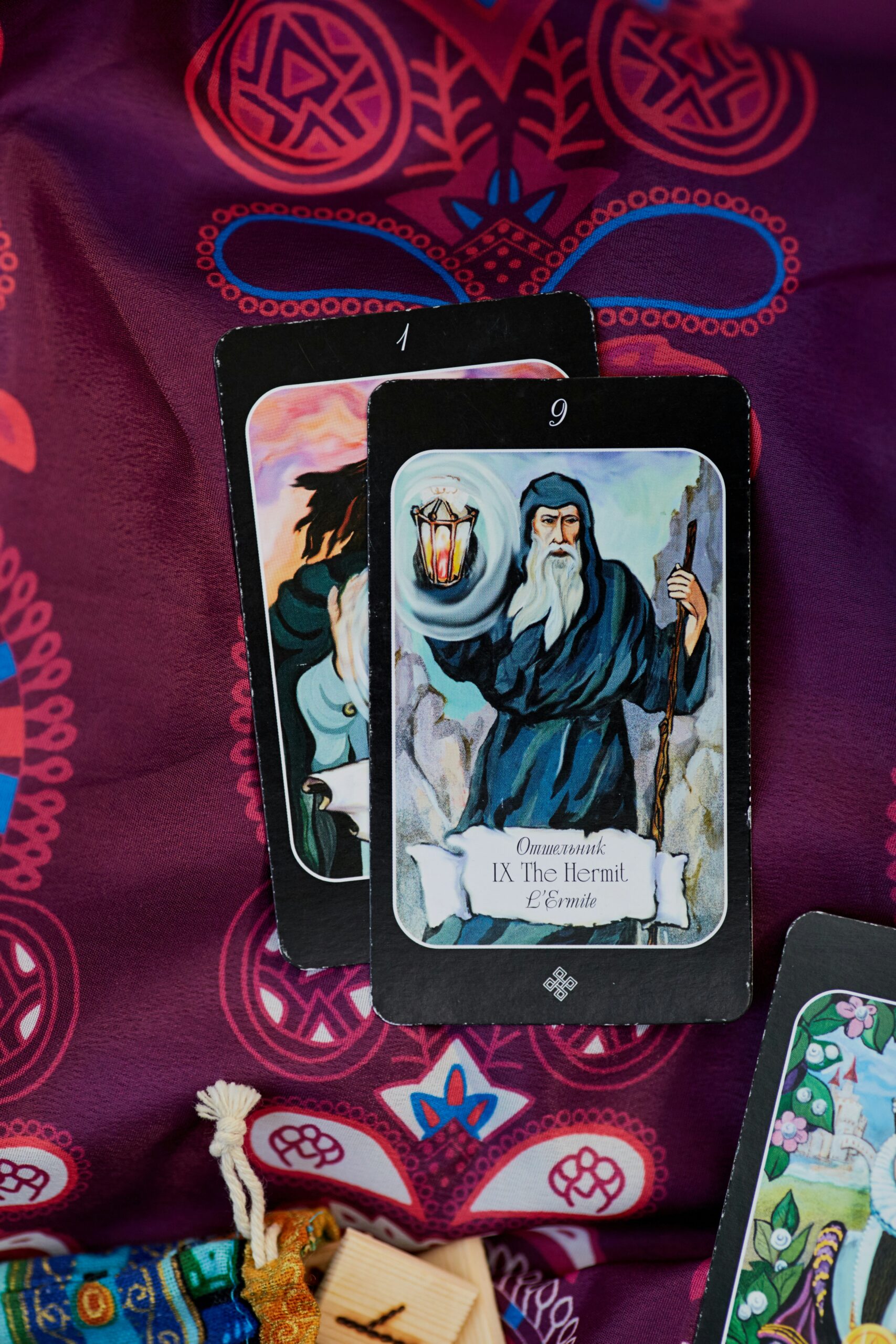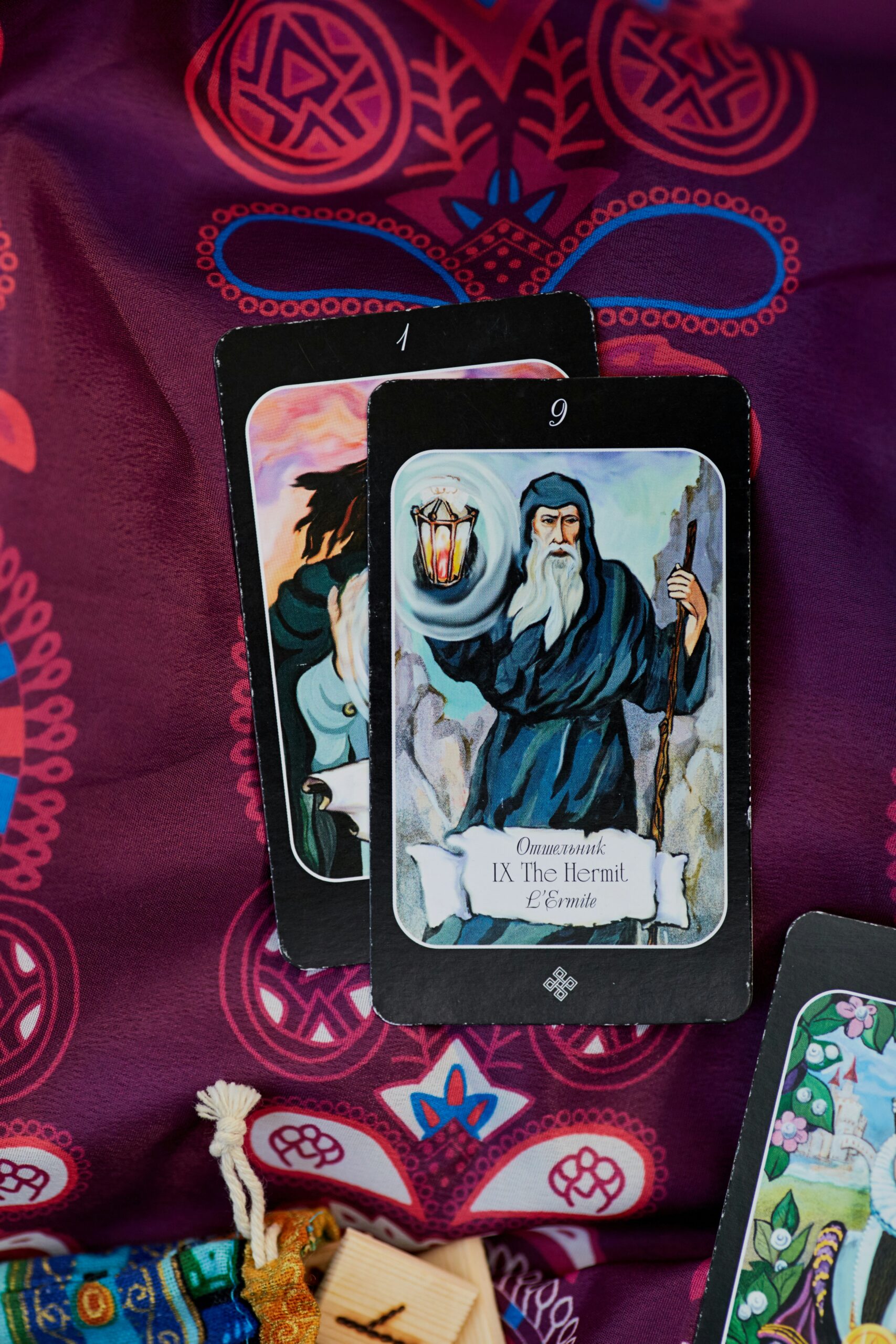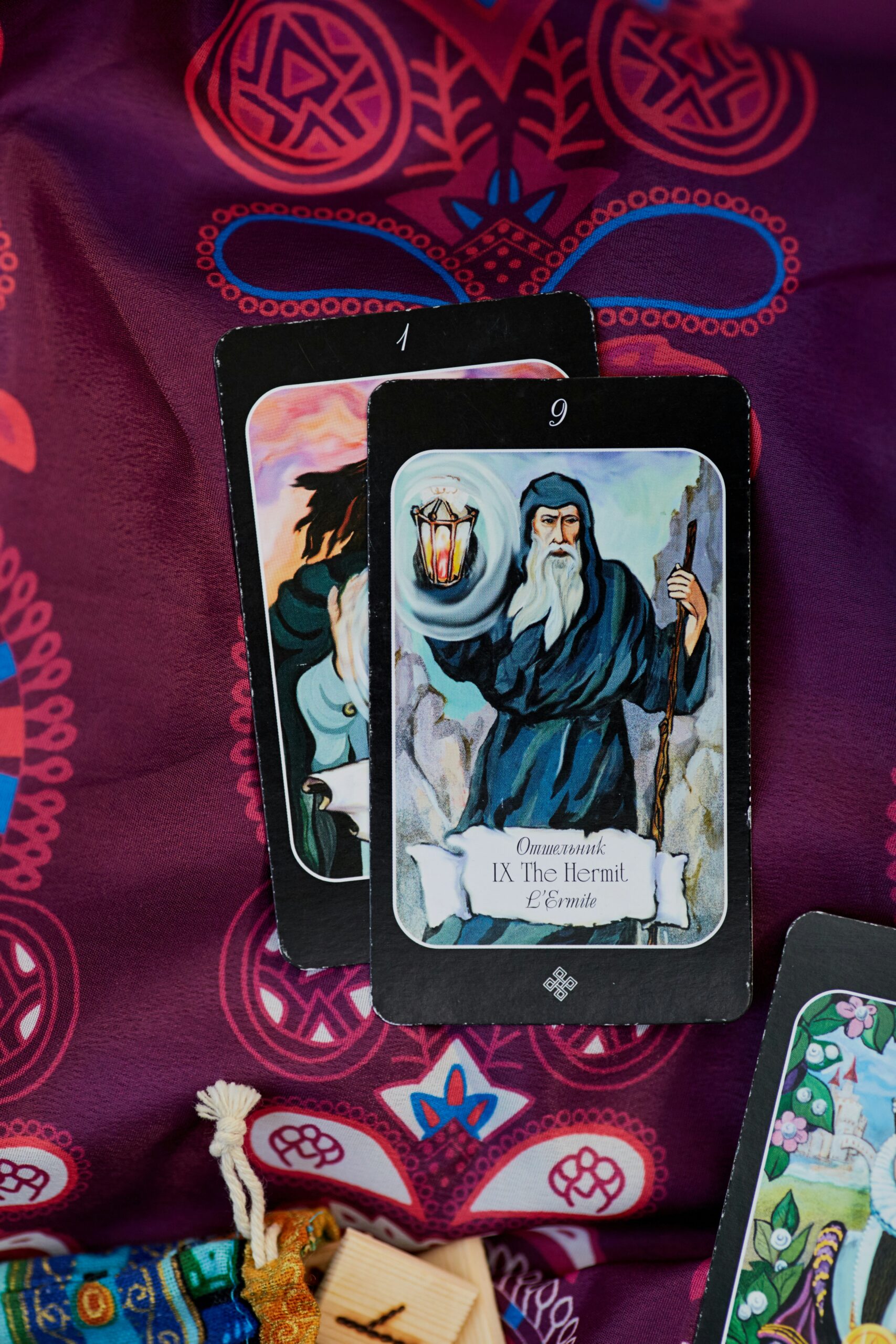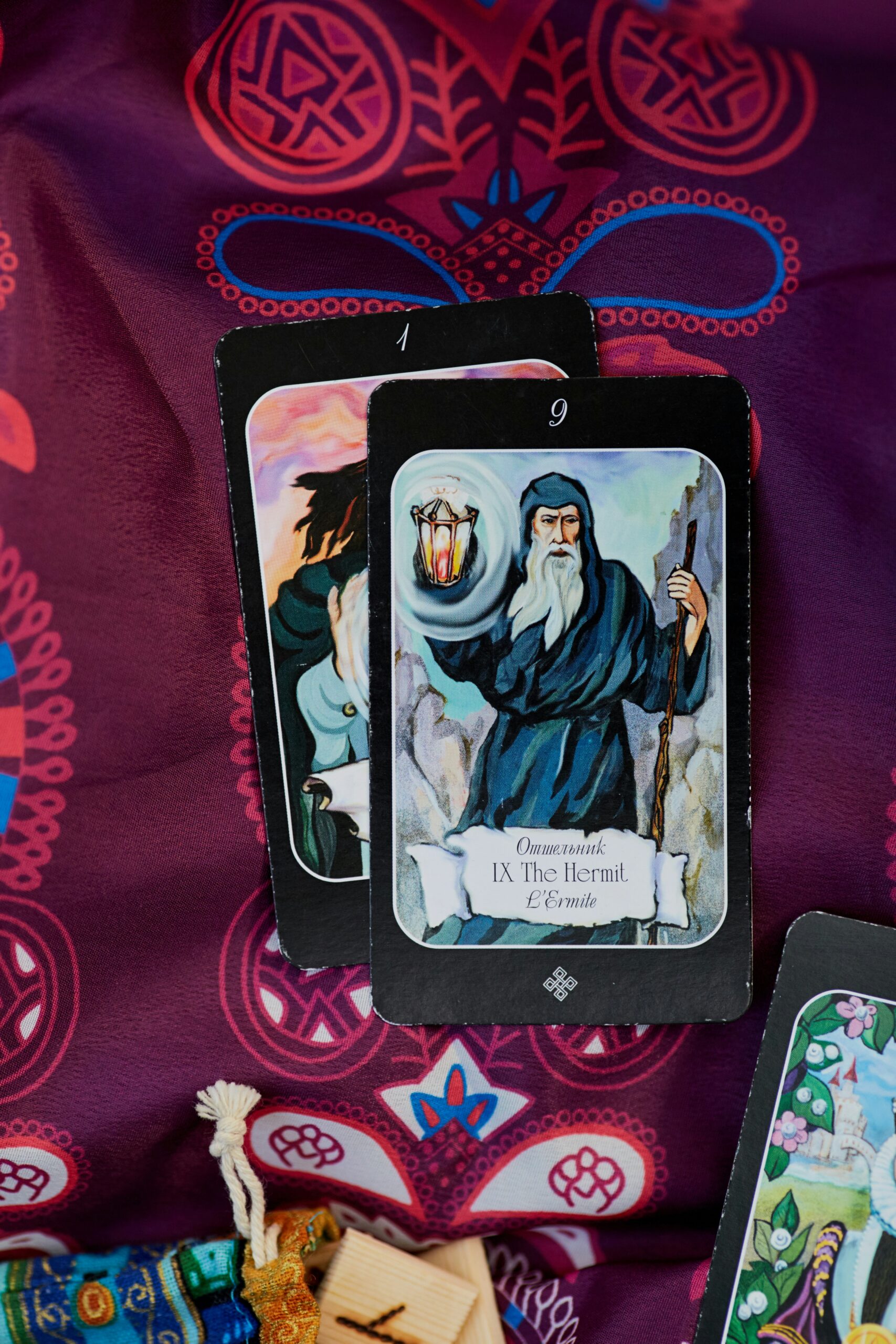
Photo by <a href="https://unsplash.com/@tengyart" rel="nofollow">Олег Мороз</a> on <a href="https://unsplash.com/?utm_source=hostinger&utm_medium=referral" rel="nofollow">Unsplash</a>
Introduction to Vedic Astrology
Vedic astrology, also known as Jyotish, is an ancient practice rooted in the Vedas, which are the oldest sacred texts of Hinduism, composed around 1500 to 500 BCE. This astrological system is distinguished by its depth of philosophical and spiritual insights and offers a comprehensive framework for understanding an individual’s life path, personality, and potential. Unlike Western astrology, which primarily focuses on the psychological aspects of human behavior, Vedic astrology emphasizes the cosmic influences on a person’s destiny and spiritual development.
In Indian culture, Vedic astrology holds great significance, serving as a guide in various aspects of life, including marriage, career choices, and health. This ancient science is based on the belief that celestial bodies influence human affairs and that understanding these influences can lead to greater self-awareness and personal growth. Practitioners utilize a person’s birth chart, or Kundali, which is calculated based on the exact time and location of their birth. This chart reflects the positions of celestial bodies and their potential effects on the individual’s life.
One of the primary distinctions of Vedic astrology is its use of the sidereal zodiac, which considers the actual positions of constellations in the sky, as opposed to the tropical zodiac employed by Western astrology. This fundamental difference can result in varying interpretations of astrological influence. Moreover, Vedic astrology emphasizes the karmic influences and the spiritual lessons that can be derived from one’s life experiences. By applying this holistic approach, practitioners provide insights not only about the immediate challenges an individual may face but also the broader spiritual journey that informs those experiences.
By examining the core principles and practices of Vedic astrology, individuals can gain valuable understanding and insights into their life’s purpose and potential, leading to a more fulfilling existence.
The Foundations of Vedic Astrology
Vedic astrology, also known as Jyotisha, is an ancient Indian science that elucidates the interplay between celestial bodies and human experiences. At its core are several fundamental elements that together form the basis of this astrological discipline. Among these elements, the zodiac, planets, houses, and nakshatras play pivotal roles in generating a person’s birth chart, which serves as a map of their potential life path.
The zodiac in Vedic astrology is divided into twelve signs, each associated with specific qualities and characteristics. These signs act as a canvas upon which the planets and their influences are projected. Each planet, from the luminaries of Sun and Moon to the more distant planets like Saturn and Jupiter, holds significant meaning and contributes uniquely to an individual’s astrological interpretation. Their positions in relation to the twelve signs at the time of one’s birth are crucial for accurate predictions and insights.
Complementing these elements are the houses, which are derived from the twelve signs. Each house represents a different area of life, such as career, relationships, and health. The interaction between the planets and the houses is essential in determining how certain influences manifest in a person’s life. This dynamic interplay helps astrologers offer a thorough analysis that reflects an individual’s unique journey.
Additionally, the nakshatras, or lunar mansions, further enrich Vedic astrology. There are twenty-seven nakshatras, each possessing distinct qualities and governing specific aspects of life. By examining the alignment of planets within these nakshatras, astrologers can provide deeper insights into a person’s character and fate.
In conclusion, the foundations of Vedic astrology are built upon intricate systems of zodiac signs, planetary influences, houses, and nakshatras. Understanding these core components is essential for deciphering the complex nature of one’s birth chart and, consequently, the ways in which time and space shape individual destinies.
Understanding the Birth Chart (Kundli)
The birth chart, commonly referred to as Kundli in Vedic astrology, serves as a foundational tool for astrological interpretation. It is essentially a celestial map that captures the positions of celestial bodies at the exact moment of an individual’s birth. By understanding how to read a Kundli, one can gain valuable insights into personality traits, life challenges, and potential opportunities. The primary components of a birth chart include Rashi (zodiac signs), Bhavas (houses), and aspects—each contributing uniquely to the overall analysis.
Rashi, or zodiac signs, represent the twelve divisions of the celestial sphere. Each sign carries specific attributes. For example, Aries (Mesha) is associated with assertiveness and leadership qualities, whereas Taurus (Vrishabha) signifies stability and material comforts. The positioning of planets in these signs plays a crucial role in determining an individual’s inherent characteristics and dispositions. To illustrate, if the Moon is situated in Leo in a person’s chart, they may exhibit a flair for the dramatic and a strong desire for recognition.
Bhavas, or houses, denote various aspects of life, such as career, relationships, and health. Each of the twelve houses corresponds to specific themes. For instance, the 10th house relates to one’s professional life and reputation. The planets positioned within these houses can significantly influence how an individual navigates through life experiences. If Saturn resides in the 7th house, it may indicate challenges in partnerships or marriage.
Additionally, aspects or connections between planets enrich the chart’s complexity. These can indicate harmonious relationships, as seen with a trine aspect, or tension, as with a square aspect. For example, if Venus and Mars have a favorable aspect, it can suggest a dynamic and passionate personality. By assessing these elements collectively, one can draw meaningful conclusions about their life path, embracing the ancient wisdom embedded in Vedic astrology.
Key Principles of Vedic Astrology
Vedic astrology, also known as Jyotish, is an ancient Indian system of astrology that emphasizes the relationship between celestial bodies and human behavior. At the core of this astrological framework are four essential principles that guide individuals in understanding their life purpose and potential. These principles—Dharma, Artha, Kama, and Moksha—address different aspects of existence, providing a comprehensive pathway for personal and spiritual development.
Dharma refers to one’s duty or righteousness. In Vedic astrology, it encourages individuals to align their actions with their moral obligations and the broader cosmic order. By fulfilling their Dharma, people cultivate a life characterized by purpose and ethical conduct, which leads to harmony within themselves and with their surroundings. This alignment not only benefits the individual but also contributes positively to the community at large.
Artha signifies prosperity and material well-being. Within Vedic wisdom, achieving Artha is seen as essential for a fulfilling life. However, it is crucial that the pursuit of material success does not overshadow one’s spiritual commitments or ethical responsibilities. Vedic astrology supports individuals in balancing their financial aspirations with their higher duties, ensuring that prosperity comes as a natural consequence of righteous living.
Kama, the third principle, pertains to pleasure and emotional fulfillment. It acknowledges that pleasure is an integral part of life, allowing individuals to experience joy and satisfaction. The teachings of Vedic astrology advocate for the mindful pursuit of Kama, emphasizing that it should be balanced with Dharma and Artha to avoid excess and maintain equilibrium.
Finally, Moksha represents spiritual liberation, the ultimate goal of human existence. Vedic astrology provides insights that help individuals transcend their material limitations, guiding them towards self-realization and enlightenment. By integrating these four principles—Dharma, Artha, Kama, and Moksha—individuals can create a balanced and meaningful life, guided by the timeless wisdom of Vedic astrology.
The Role of Dasha System
The Dasha system is an integral part of Vedic astrology, serving as a unique framework that outlines the planetary periods that influence an individual’s life. This system operates on the principle that the position of planets at the time of one’s birth continuously exerts influence on their life journey through distinct phases, known as Dashas. Each Dasha represents a specific time frame during which a particular planet governs the individual’s experiences, circumstances, and opportunities.
Among the various Dasha systems in Vedic astrology, the Vimshottari Dasha is the most prominent and widely used. This system is based on a 120-year cycle divided into nine planetary periods: Sun, Moon, Mars, Mercury, Jupiter, Venus, Saturn, Rahu, and Ketu. Each planet governs a specific number of years within this cycle, shaping the life experiences according to its intrinsic qualities. For instance, during the Jupiter Dasha, often characterized by growth and expansion, individuals may encounter opportunities for education, travel, or career advancement. Conversely, during a Saturn Dasha, which is often associated with challenges and hard work, individuals may face obstacles that encourage personal growth through perseverance and resilience.
Understanding the different types of Dashas enables individuals to make informed decisions in various aspects of life. Knowing which planetary period they are currently experiencing and what is to come can help them navigate personal relationships, career choices, and even health matters more effectively. It allows for a greater awareness of favorable periods for initiating projects or resolving conflicts, providing a roadmap to optimize life choices based on astrological influences. By leveraging the insights gained from the Dasha system, individuals can align their actions with the rhythms of their personal astrological cycles, potentially leading to more fulfilling experiences and outcomes.
Predictive Techniques in Vedic Astrology
Vedic astrology, known for its deep-rooted traditions, employs several predictive techniques that serve as valuable tools for understanding one’s life journey. Among these techniques, transit analysis, Muhurta, and Prashna stand out for their unique methodologies and practical applications in decision-making.
Transit analysis involves studying the movements of celestial bodies as they travel through the zodiac. This technique focuses on how these transits interact with an individual’s natal chart, illuminating key periods for life events such as career changes, relationships, and personal growth. By understanding the timing and nature of these celestial movements, individuals can better prepare for potential challenges and opportunities that may arise in their lives.
Muhurta, or electional astrology, is another essential predictive technique in Vedic astrology. It involves selecting an auspicious time to initiate significant activities, such as starting a new business or getting married. The principles of Muhurta are based on the alignment of celestial bodies at the moment of action; when chosen carefully, they can enhance the likelihood of positive outcomes. This method emphasizes the importance of timing in Vedic astrology, offering an opportunity to align one’s actions with cosmic energies.
Prashna, or horary astrology, examines specific questions with the aim of providing immediate answers through astrological interpretation. When an individual poses a question, the astrologer casts a chart based on the moment the query is made. This method can reveal insights into various aspects of life, offering clarity and guidance. Whether it pertains to family matters, career, or financial issues, Prashna serves as a practical tool in navigating life’s uncertainties.
Through these predictive techniques, Vedic astrology equips individuals with the knowledge to make informed choices. By recognizing the significance of timing and celestial influences, individuals can enhance their ability to navigate life’s complexities more effectively.
Remedies in Vedic Astrology
Vedic astrology, a traditional Indian system rooted in ancient wisdom, offers a variety of remedial measures aimed at mitigating the adverse effects of planetary influences. These remedies, based on astrological principles, are believed to pave the way for personal growth and enhanced spiritual development. Central to this practice is the understanding that planetary energies can significantly influence human life, leading to both beneficial and challenging circumstances.
One of the most well-known remedial measures in Vedic astrology involves the use of gemstones. Each gemstone corresponds to a specific planet and is believed to carry unique vibrations that can counteract negative influences. For instance, wearing a yellow sapphire is often recommended for those facing challenges related to Jupiter, as it is thought to enhance wisdom and prosperity. Selecting the right gemstone should ideally be done under the guidance of a qualified astrologer to ensure it aligns with one’s birth chart and specific planetary positions.
In addition to gemstones, the recitation of mantras is a powerful remedy in Vedic astrology. Mantras are sacred sounds or phrases that resonate with specific energies, allowing individuals to channel divine frequencies into their lives. Regularly chanting these mantras can help harmonize conflicting planetary energies, bringing tranquility and balance. Rituals and poojas are also integral to Vedic astrological remedies, involving worship practices designed to appease celestial bodies. These rituals often include offerings, lighting lamps, and conducting ceremonies, fostering a deeper connection with the cosmic forces.
Furthermore, lifestyle changes are recommended to align one’s actions with the natural order of the universe. Incorporating meditation, yoga, and dietary adjustments can help individuals enhance their physical and mental well-being while fostering spiritual growth. Embracing these remedial measures not only aids in navigating life’s challenges but also promotes a path toward self-awareness and enlightenment. Through the application of Vedic astrology’s insights, individuals can unlock profound wisdom that leads to a fulfilling and balanced life.
The Modern Relevance of Vedic Astrology
In the contemporary age, characterized by rapid changes and uncertainties, Vedic astrology has emerged as a potent tool for individuals seeking clarity and guidance in various facets of life. This ancient practice, rooted in the Vedic texts of India, offers insights that extend beyond mere prediction, providing a framework for understanding one’s place in the universe. The increasing interest in Vedic astrology can be attributed to its applicability in modern contexts, including career guidance, relationship analysis, and personal development.
One of the most significant areas where Vedic astrology finds relevance today is in career guidance. As individuals navigate their professional paths amidst an ever-evolving job market, Vedic astrology can reveal inherent strengths and weaknesses. By analyzing planetary positions at the time of one’s birth, practitioners can offer valuable insights into suitable career options, optimal timing for job changes, and potential challenges. This guidance helps individuals make informed decisions that align with their astrological profiles, ultimately fostering career satisfaction and success.
Additionally, Vedic astrology plays a crucial role in examining relationship compatibility. In a world where interpersonal dynamics can be complex and challenging, astrology provides a unique lens through which individuals can assess the compatibility of their relationships. By comparing the birth charts of partners, Vedic astrologers can highlight areas of harmony and potential conflict, enabling couples to navigate their relationships with greater understanding and empathy.
Furthermore, as people seek personal growth and self-awareness, Vedic astrology serves as a valuable resource for introspection. By encouraging individuals to reflect on their life patterns and experiences, it empowers them to make informed choices that align with their true selves. This holistic approach not only enriches personal development journeys but also instills a sense of purpose in the chaotic landscape of modern life. The timeless wisdom of Vedic astrology continues to resonate, offering guidance and support to those who seek it amidst their quest for understanding.
Conclusion: Embracing the Wisdom
As we draw our exploration of Vedic astrology to a close, it becomes evident that this ancient discipline offers profound insights into the nature of existence and personal growth. Throughout our journey, we have discovered that Vedic astrology is not merely a tool for predicting the future, but rather a roadmap for self-discovery. By understanding the positions and influences of celestial bodies, individuals can gain clarity about their life’s purpose and the unique challenges they may face.
The teachings of Vedic astrology remind us of the interconnectedness of the cosmos and our existence within it. Each individual’s birth chart serves as a mirror, reflecting not only personal characteristics and strengths but also the potential areas for growth and transformation. This ancient wisdom encourages introspection and empowers individuals to make informed choices, leading to a more fulfilling life experience.
Furthermore, the insights gained from Vedic astrology can facilitate personal empowerment. By recognizing the cycles of life and the timing of events, individuals may navigate their journeys with greater confidence. The wisdom encapsulated in Vedic astrology invites us to embrace our unique paths, facilitating a deeper understanding of both ourselves and our relationships with others.
In light of the insights shared throughout this post, it is worthwhile for readers to consider integrating Vedic astrology into their lives. Whether through personal study, consultation with a practitioner, or simply reflecting on one’s birth chart, this timeless wisdom has the potential to unlock doors to greater awareness and fulfillment. Ultimately, embracing the teachings of Vedic astrology can lead to a more profound appreciation of life’s complexities, guiding us towards harmony and enlightenment.
